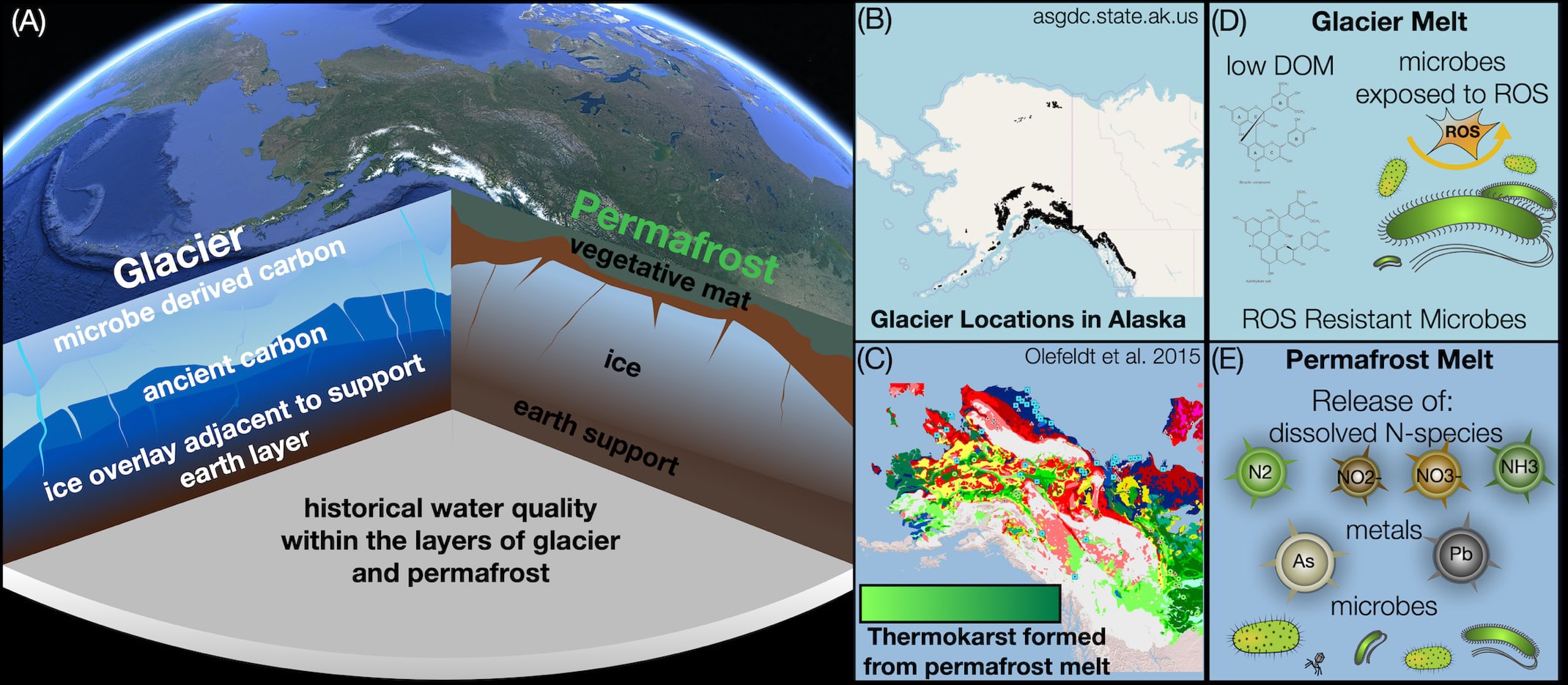
Cockrell School of Engineering faculty are leading a new project to study water quality in Alaska, featuring a unique team that includes engineers from multiple universities, renowned ethnographers and Alaska natives.
During the four-year project, the team will analyze four bodies of water in the state, including a lake impacted by melting permafrost, glaciers and the rivers and lakes they feed into. They will examine water quality indicators, such as dissolved organic carbon concentration and composition, metals and microbial ecology.
The project just received two grants totaling $3 million ($2M award; $1M award) from the National Science Foundation's 10 Big Ideas program, which lays out a blueprint for the organization’s long-term research funding agenda. One of those big ideas is "Navigating the New Arctic." NSF aims to fund projects that will rectify a lack of tools to observe and analyze the region as it undergoes rapid change.
Examining the quality of water encased in melting permafrost and glaciers is an important part of the project. Sea-level rise has attracted plenty of attention, but information about climate change's impact on water quality remains sparse, the researchers say.
"There is zero information about the microbes that will be released in the Arctic in the decades to come," said Navid Saleh, associate professor in the Department of Civil, Architectural and Environmental Engineering, who has also worked with native communities in New Mexico and Texas on water quality issues. Saleh will serve as the principal investigator on the Alaska project.
In addition to scientific study, the team will seek to learn more about the tribes' historical management of their water supply. This part of the project involves extensive interviews with residents, photo and video elements and public forums to gather feedback and develop community-supported ideas for water management.
Combining historical and institutional knowledge with data has gained popularity in the scientific community. And while papers have been published about the convergence of science and native knowledge as it relates to fishing, such a study about water management has never been done, Saleh said.
The researchers aim to create a set of tangible water management guidelines and actionable items tailored to each tribe's water source. On a broader scale, the team hopes its work will increase knowledge about water quality issues in Alaska, and help communities there prepare for the impacts of climate change and evolving conditions in the Arctic.
Saleh and Mary Jo Kirisits, associate professor in the Department of Civil, Architectural and Environmental Engineering make up the UT contingent. Working with them are associate professor Srijan Aggarwal and professor Yuri Shur, both of University of Alaska Fairbanks' College of Engineering and Mines, and Mikhail Kanevskiy, research assistant professor in the Water and Environmental Research Center. Other team members include Knik Tribe member Theo Garcia; Laura Eichelberger, senior epidemiology and health research consultant with the National Tribal Water Center; and Henry Huntington, an Alaska-based researcher who studies Arctic policy, human-environment interactions and traditional knowledge in native communities.







